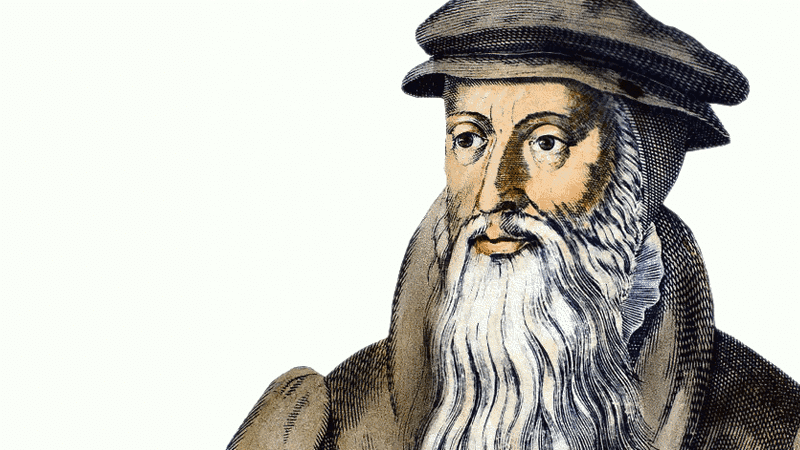On this day in 1572: Reformer John Knox died

Today marks the 450th anniversary of the death of the Scottish reformer and firebrand preacher John Knox.
In Scotland, the Reformation church was a persecuted minority. John Knox was one of those who fled, subsequently forging strategic links with English and European Reformers.
His return to Edinburgh in 1559 coincided with a revolt by Protestant nobles against the French-backed Roman Catholic monarchy.
This saw outright persecution come to an end, but as Knox fought for the building of a faithful church in place of the old, Mary Queen of Scots tried to silence him and undo his work. Yet she had to admit: “I fear the prayers of John Knox more than all the assembled armies of Europe.”
Knox’s resolution and courage, and especially his Spirit-filled preaching, were central to the Reformation’s growth and survival in Scotland.
Come, Lord Jesus, sweetest Saviour, into thy hands I commend my spirit. Look, I beseech thee, with favour, upon this church which thou hast redeemed, and restore peace to this afflicted commonwealth.
Raise up pastors after thine own heart, who may take care of thy church; and grant that we may learn, as well from the blessings as from the chastisements of thy providence, to abhor sin, and love thee with full purpose of heart.
Words attributed to John Knox as he neared death.
In 2017 Banner of Truth co-founder Revd Iain Murray spoke of Knox’s legacy as part of The Christian Institute’s series of Autumn Lectures for that year. He identified two key areas.
1. The place of preaching
Knox’s preaching was said to be “more impressionable than the blasting of many trumpets in a person’s ear”, said Murray. He believed reformation depended upon men speaking in the power and in the presence of the Holy Spirit.
Many modern evangelicals, argued Murray, suppose effective evangelism comes from the multiplication of teachers. Knox however emphasises that preaching is not a human gift, but that men are sent and equipped by the power of Jesus Christ.
Nothing should be allowed to distract worshippers from hearing the word of God.
2. The whole of Scripture
The Scot also held the Old Testament in greater standing than many do these days. He believed that the lack of preaching from the Old Testament had led to the truths of sin, repentance, and the wrath of a Holy God all but vanishing.
He recognised that people would only come to know Christ when they are convicted of their sin. It was this conviction that would lead to repentance and to salvation.
Murray concluded by noting that we may not all be called to be John Knox, but we are all called to ‘fight the good fight’.
He said: “God builds the church, He has a chosen people. Our business is to be faithful and speak the truth.”
